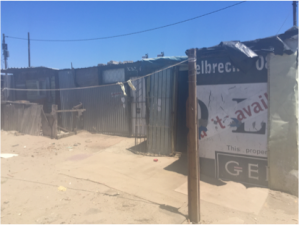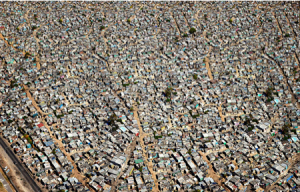by Abby Steinsiek
SASA’15 group safety is amongst the group’s top priorities during this one-month adventure in and around cities in South Africa. Especially Cape Town and Johannesburg are well known for their crime rates and tourist are told to stay on high alert/guard at all times. Tourists though need to remember that in any big city one needs to take precautions for their safety and health. With this mindset an individual needs to avoid sticky situations and follow educated gut instincts while adventuring.
My gut instinct before learning about townships was that these communities were unsafe and unsanitary. Then after I became knowledgeable on townships through first hand experience and various class readings I realized that one has to have the same health and safety precautions in townships as if they were visiting New York City. Ramphele (1991) research demonstrated that South African township hostel social orders keep these societies safe and tourist friendly. On several occasions during class discussions and the Langa tour the safety of South African tourist in townships was discussed. These discussions concluded that tourists are critical for the townships economy. Therefore tourist safety is of great importance to the South African economy as a whole. The hostel social order propagates from superintendent to elders to men then to women and children (Ramphele, McDowell, & Cock, 1991). This system of internal governance has demonstrated to work over the years and therefore tourist feel safe to visit.
Township hostels first started out solely for men who were working in the industrial sector. Eventually these small hostels turned into an accommodating living arrangement for women and children as well. The quality of the hostels varies but overall these inhabitants feel like they live like animals (Ramphele et al., 1991).

Before taking a tour of Langa I personally felt nervous because these peoples history with whites. Reflecting back on apartheid I couldn’t help but wonder how these township people were okay with tourist coming to tour their homes and community. That nervousness disappeared though when I was sitting and listening to the South African Methodist Church worship. Although I could not understand what they were saying I felt sensations of hope and light even in the midst of the poverty outside the church walls. Outside the walls of the church there were houses, shacks and venders (Figure 1). I saw that these townships citizens wanted tourist to come so that they could generate an income as well as educate the world on the effects of apartheid.
Half way through the tour I asked my Langa tour guide about the crime rate in the township and he responded, “Individuals can’t get away with much here because everyone watches out for each other and would punish an individual worse for a crime than the police.” It’s incredible and reflective that these township citizens can live in incredibly small spaces and still seem to find a way to live in peace. In addition to living in peace there are also natural human conflict in townships.

On Janurary 7th of 2015 Swedish tourist, guide and bus driver were held at gunpoint in the Khayletisha township. (Newsroom, 2015). Only some personal items and cash were stolen from the tourist. Although this short article might scare a few tourist off it should not prevent future tour groups from coming, seeing and learning more about apartheid through visiting Khayletisha (Figure 2). SASA’15 was suppose to visit Khayletisha but ended up changing the itinerary because the lack of information about the robbery and wanted to play it safe. It was predicted that the Swedish tourist’s driver got lost and ended up taking the wrong direction advice, which lead the bus to an unsafe part of the township. Again like any large community one must take the same precautions as if they were in New York, London or Dublin. Professor Layne stated that she was hoping to reschedule the township visit to Khayletisha but due to time constraints the SASA’15 group was not able to visit the township.
Overall Elon University and the South African government would not want 25 plus American students and teachers to feel unsafe or uncomfortable visiting Cape Town or the townships. This is because Elon University is reliably for each student and that some township families’ incomes are generated from the tourist expenditure. Even though the SASA’15 group was unable to visit Khayletisha the group is still open to visiting cultural and educational diverse places in South Africa.
References
Newsroom. (2015). Swedish tourist robbed in khayletisha. The Voice of the Cape.
Retrieved from,
http://www.vocfm.co.za/swedish-tourists-robbed-in-khayelitsha/
Ramphele, M. (1993). A bed called home: Life in the migrant labour hostels of Cape Town. Cape Town: D. Philip.
Ramphele, M., McDowell, C., & Cock, J. (1991). Restoring the land: Environment and change in post-apartheid South Africa. London: Panos.
